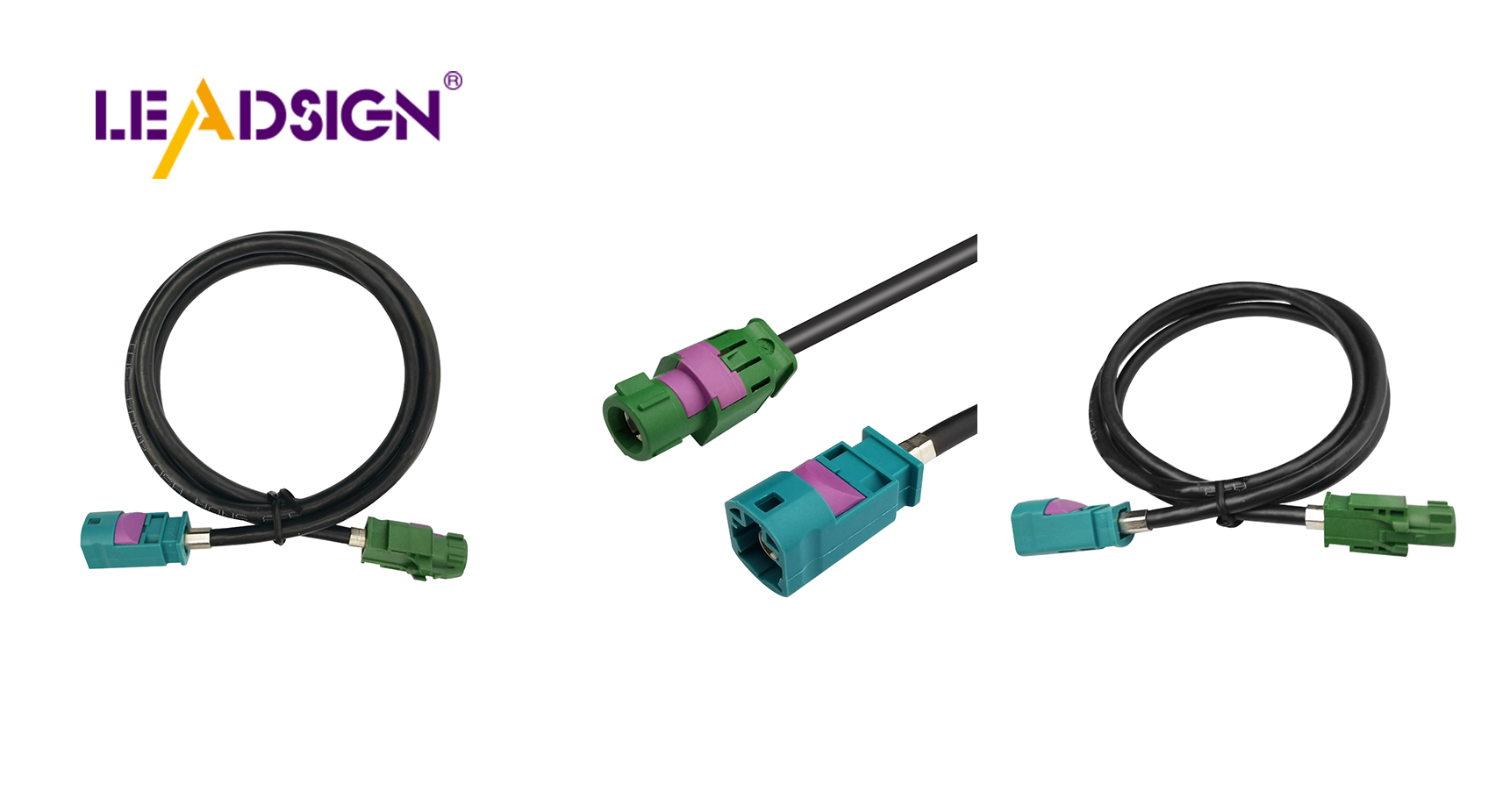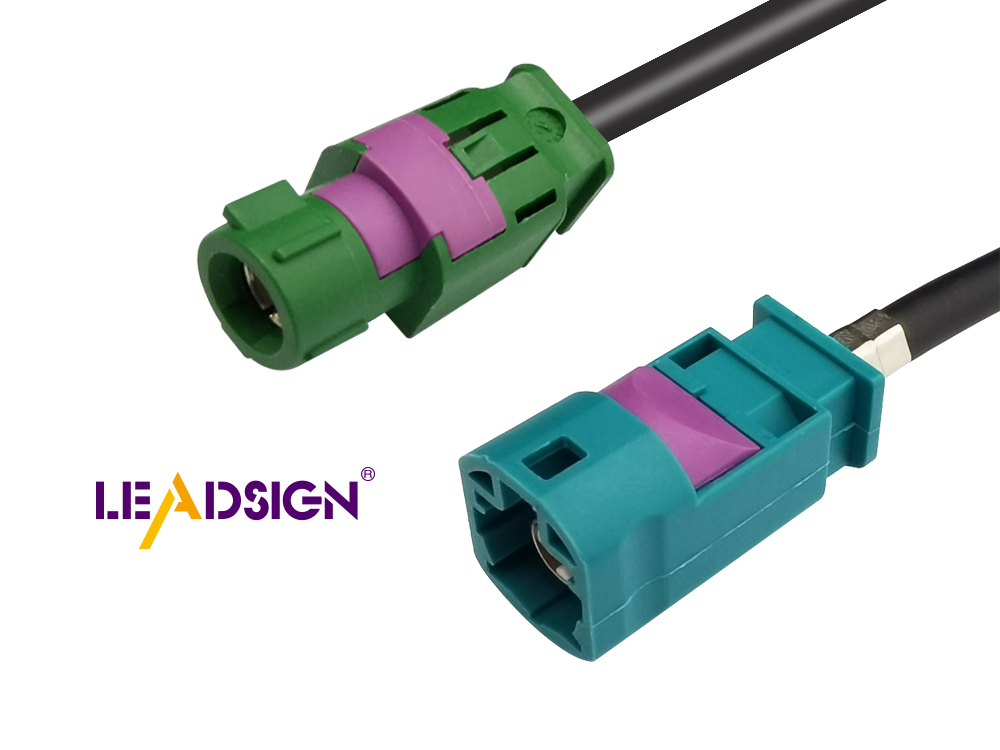How to Choose the Right Automotive Wiring Connector Types

Selecting the appropriate auto wire connector types is crucial for your vehicle. These connectors play a vital role in transmitting electrical signals within your car. Inferior connectors can lead to issues, with a higher failure rate compared to aircraft wires. Consider factors like weather resistance and the required number of pins. Understanding different auto wire connector types empowers you to make informed choices, ensuring optimal performance of your car's electrical system. Let's explore how to select the most suitable connectors for your needs.
Understanding Auto Wire Connector Types

Knowing about different auto wire connectors is important. They help your car's electrical parts work well. Let's look at the types and what makes them special.
Types of Auto Wire Connectors
Blade Connectors Blade connectors are flat metal pieces that fit into slots. They're common in cars because they're easy to use and hold tight. They're great for when you need to unplug and plug wires often.
Bullet Connectors Bullet connectors are round and fit snugly into sockets. They're reliable and used in car lights a lot. Their shape makes connecting fast and simple.
Butt Connectors Butt connectors join two wires end-to-end securely. They're perfect for fixing wires in cars. These connectors make strong, lasting links, so people like using them.
Pin Connectors Pin connectors have pins that go into matching sockets. They're handy in many car uses because they go in and out easily, which helps with repairs.
Materials Used in Connectors
What a connector is made of affects how it works and lasts.
Metal Connectors Metal ones, like copper or brass, carry electricity well and don't rust easily, making them last long—great for high-performance needs where trust matters.
Plastic Connectors Plastic ones insulate and protect from weather; they're light, good where weight matters but less conductive than metal yet still protect many car uses well.
Connector Sizes and Ratings
Knowing sizes and ratings helps pick the right connector for you.
Current Rating Current rating shows how much current a connector can handle safely without overheating or failing under load; always check specs to match your car's needs.
Voltage Rating Voltage rating tells max voltage a connector can take; picking right prevents failures ensuring safety especially with high-voltage systems considered crucially here too!
By knowing these auto wire connectors, you choose wisely for your car's electric system! Each type has special features—pick based on what you need!
Picking the Right Connector
Choosing car wire connectors needs some important thoughts. Let's see what you should think about for your car's electric system to work well.
Where You'll Use Them
Think about where and how you'll use connectors.
Weather Conditions
Think about the weather where connectors will be used. Will it be hot, wet, or dusty? Connectors in tough spots need to handle these things. Pick ones that are strong and waterproof. This helps them work well even when it's hard.
Power Needs
Power needs are very important too. You need connectors that can take the power of your system. Check each connector's power limits. This stops overheating and breaking. The right connector keeps your car safe and working well.
Fit with Wires
Making sure they fit with your car's wires is key for a good connection.
Wire Thickness
Wire thickness means how thick the wire is. Match the connector to this thickness for a good fit. Wrong size can cause bad connections and breaks. Always check sizes to match wires right.
Wire Covering
Wires have different coverings. Some bend easily, others protect from heat or chemicals better. Pick connectors that fit your wire's covering well. This makes sure connections stay strong and last long.
Lasting Long and Working Well
Connectors should last long and work every time.
Rust Protection
Rust can ruin connectors over time, causing breaks. Choose rust-proof materials like special metals or coated plastics for longer life and good work.
Strong Build
Strong build matters if connectors face physical stress. Find ones with tight locks and solid make-up to stop accidental unplugs, keeping your car's electric system steady.
By thinking about these points, you pick the best car wire connectors confidently! Each part helps keep your car’s electric system running great.
Common Mistakes and FAQs
Picking the right auto wire connector types can be hard. You might make mistakes if you're not careful. Let's see these mistakes and answer some common questions to help you.
Common Mistakes in Connector Selection
Ignoring Environmental Factors
You might forget how important the environment is when choosing connectors. Weather like heat, rain, or dust can affect them. If you ignore this, your connectors might break early. Always pick connectors that handle the weather they will face. This helps them last longer and work well.
Overlooking Compatibility
Another mistake is not checking if connectors fit your car's wires. Match the connector to the wire size and cover type. If not, connections could be bad and cause problems. Double-check everything fits right.
Testimonial:
"I've worked on many car designs, and I know cables and connectors are key for a vehicle's electrical system."
Frequently Asked Questions
How to Identify Connector Types
Finding out auto wire connector types isn't too hard. Look at their shape and size. Blade connectors are flat; bullet ones are round. Butt connectors join wires end-to-end; pin ones have pins for sockets. Knowing these shapes helps you spot them fast.
Tips for Ensuring Proper Connection
To get a good connection, use the right tools like a strong crimper. Clean connectors before using them to remove dirt or grime for a solid link. Make sure they're tight so they don't come loose easily. These tips keep your car's electrical system steady.
By avoiding these mistakes and knowing how to find and use different auto wire connector types, your car's electrical system will run smoothly. Remember, picking the right connectors matters!
Choosing the right automotive wiring connectors is very important. It helps your car work well and stay safe. Here are the main points:
Know Connector Types: Each has special features. Pick what you need.
Think About Use: Consider weather and power needs.
Check Compatibility: Match with wire size and cover.
Focus on Strength: Find rust-proof and strong ones.
Picking the right connector keeps your car working great. Always think about everything to keep your car's electric system running well. Make smart choices for the best results!
See Also
Exploring HSD Connectors in the Automotive Sector
Significance of Fakra Connectors in Contemporary Cars
The Significance of HSD Connectors in Auto Manufacturing

